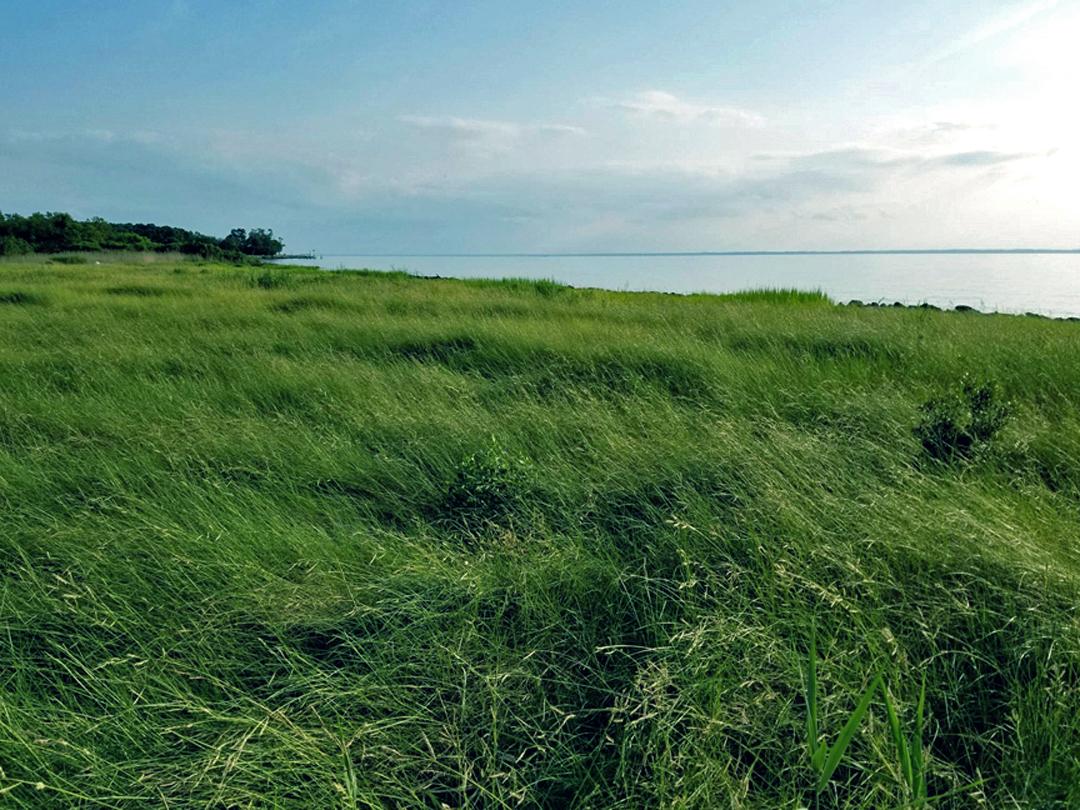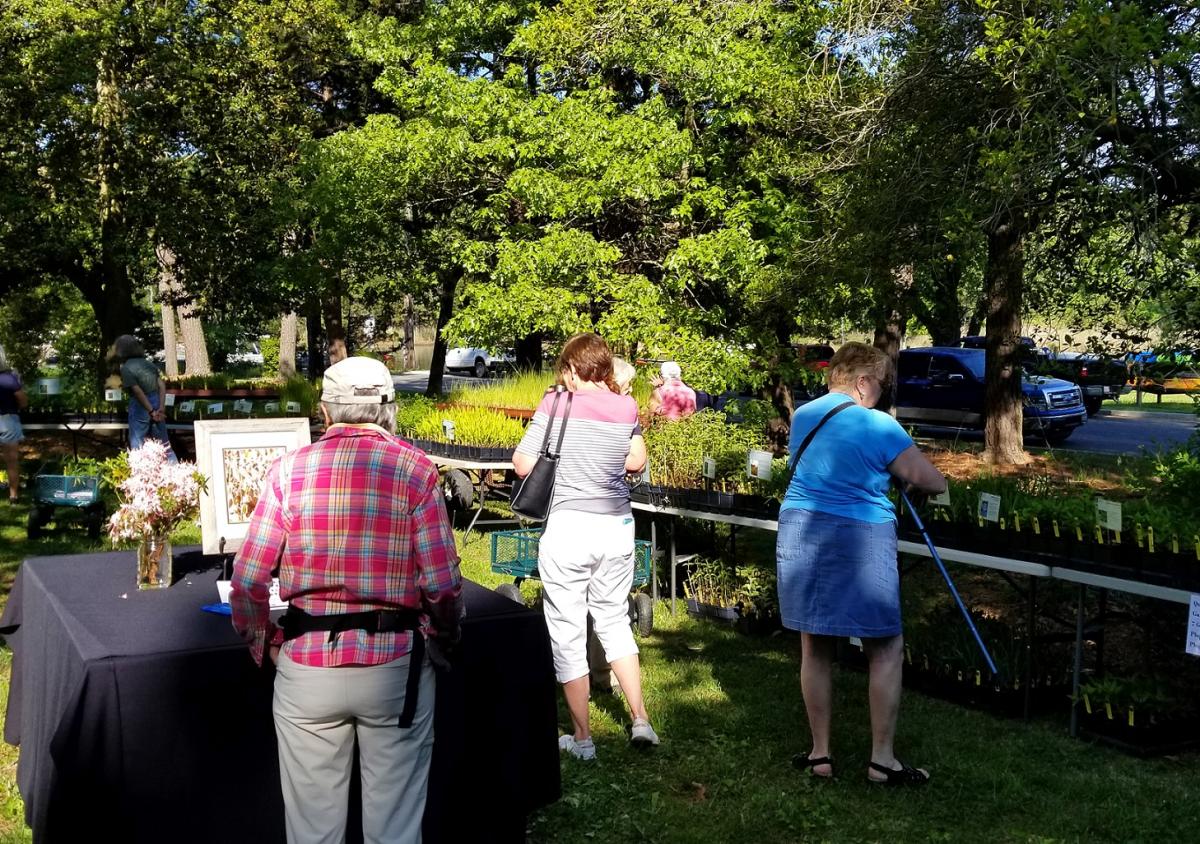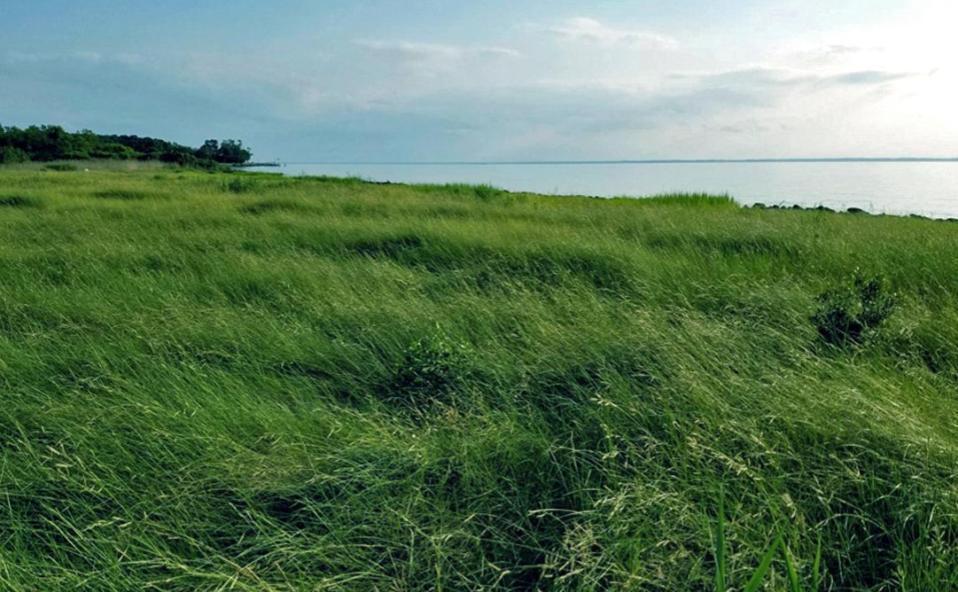Environmental Concern (EC) is celebrating the 50th anniversary of its founding in 1972. In recognition of this milestone, EC will host a series of events next spring highlighting the non-profit’s accomplishments over the last 50 years.
In the early seventies, when most people thought wetlands were worthless, mucky swamps filled with mosquitoes, EC’s founder, Dr. Ed Garbisch, recognized the importance of wetlands and the disastrous effects of losing tens of thousands of acres of this critical ecosystem in the Maryland watershed.

Living Shoreline Restored by Environmental Concern located on the Chesapeake Bay in Tilghman, MD.
Garbisch decided to take a new path, leaving his career as a University professor and devoting his life to restoring wetland habitats. EC was born! After months of trial and error, Garbisch and a team of research assistants developed the propagation protocols for over 20 species of marsh plants, growing the plants from seed to mature plant. EC staff propagated tens of thousands of plants in two glass greenhouses, using the plants to create the first successful wetland restoration project on Hambleton Island in Talbot County.
EC has always focused on the practical work required to grow native plants and restore wetlands throughout the Chesapeake Bay watershed. The staff members are practitioners, planters, and planners, expanding and refining the processes developed in the seventies to maintain the quality and sustainability of its restoration projects.
Over 50 years, the organization has restored 40 miles of shoreline. With the help and support of staff members, interns, and wetland stewards, this small non-profit has propagated over 30 million native plants. In the spring and fall, Retail Native Plant Sales are held at EC’s campus in St. Michaels. These annual community events allow the public to purchase native species that are not readily available in large retail plant outlets. EC’s growing operation has resulted in the increase of thousands of acres of critical natural habitat for songbirds, bumblebees, and endangered monarch butterflies in backyard gardens.
“The last five decades have given us plenty of reasons to celebrate,” said Suzanne Pittenger-Slear, president of Environmental Concern. “Our initiatives have expanded in all areas, including native plant sales and living shoreline restoration. In addition, EC has been a pioneer in wetland restoration, developing the wetland restoration protocol still used today to control erosion and restore wetlands in Maryland, and establishing the nation’s first Native Wetland Plant Nursery.”
Evidence of EC’s impact can be found around Maryland’s Chesapeake Bay Watershed. Poplar Island, once on the verge of disappearing, is now a model of the beneficial use of dredging materials and habitat restoration for diamondback turtles, egrets, and monarch butterflies. EC was awarded the contract to plant 650,000 plants in Cell 3D on Poplar Island. Dorchester County selected EC to design and construct a Living Shoreline on Elliott Island to protect the only road access to this quaint waterfront village.

Spring Retail Plant Sale held at Environmental Concern’s Campus in St. Michaels.
On behalf of the Town of St. Michaels, EC designed the St. Michaels Nature Trail and secured a $471,000 grant from the State to build the Trail. EC is recognized as one of the four founding Sponsors. EC employees enjoy watching the activity from EC’s Campus located between the Boundary Lane and Chew Street section of the Trail. Birdwatchers and wildlife enthusiasts linger on the covered bridge, waiting to observe the green heron in its natural habitat along the Trail.
“While we celebrate this milestone, we are proud of all of our accomplishments to date, and we look forward to the future,” said Pittenger-Slear. “We’ve seen a lot of changes over the years, but one thing remains the same – our commitment to restoring the Bay…one wetland at a time.”
About Environmental Concern
Environmental Concern, a 501(c)3 not-for-profit corporation, is committed to improving water quality and creating, restoring, and conserving wetlands, living shorelines, and other natural habitats. This is accomplished through education and outreach, propagation of native species, and professional design and installation.
To learn more, please visit www.wetland.org or e-mail Suzanne Pittenger-Slear, at [email protected].



Write a Letter to the Editor on this Article
We encourage readers to offer their point of view on this article by submitting the following form. Editing is sometimes necessary and is done at the discretion of the editorial staff.